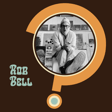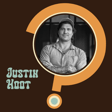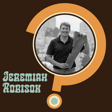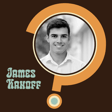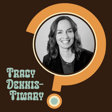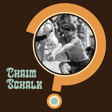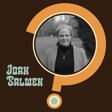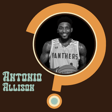Become a Creator today!Start creating today - Share your story with the world!
Start for free
00:00:00
00:00:01

Episode 6 - Bill Curry
Bill Curry was the Chief Program Officer at Breakthrough, a nonprofit organization on the West side of Chicago, where he lived and worked for over two decades. He is now the Vice President of Development at St Matthews House in Naples, Florida.
Transcript
Settling into a New Home
00:00:00
Speaker
First night we got into our house. We didn't have any of our stuff. It was all in storage. We had an air mattress in the living room and outside the house, it's loud. It's like a Friday night or something. It's loud, late into the night. And so it's a little, little intimidating. So I've got the, I've got some of those thoughts in my head. Like, did we make the right decision here? And just about midnight comes a knock on the door. Boom, boom, boom, boom, boom. I'm like, Oh no. And I got up, I went to the door.
00:00:29
Speaker
and open up and it's a teenage girl. And she says, hi, my name is Portia. I live across the street. She says, that's my grandma on the porch over there. She said, my grandma said that your keys are hanging in your front door and you probably shouldn't leave them there.
00:00:47
Speaker
I look down and there's my keys in the front door, car keys and everything. And that story on that first night I really think was there to say just because you're not comfortable all the time doesn't mean you're in the wrong place. It actually can mean you're in a very good place.
Introducing the Podcast & Guest
00:01:12
Speaker
Hello, welcome to What's Next. I'm Joel Krogman. This is my podcast. Today on the show was my conversation with Bill Curry. Bill is the Vice President of Development at St. Matthew's House in Naples, Florida. But before his role at St. Matthew's House, Bill served as the Chief Program Officer at Breakthrough in Chicago. Breakthrough serves a specific area on the west side of Chicago called Garfield Park.
00:01:37
Speaker
They support people through education and youth development, economic opportunity, housing, health and wellness, violence prevention, spiritual formation. Bill helped create Breakthrough's model for the work that they do in the community. And that's really where I got to know him. When I first moved down to Chicago, my wife and her family were pretty heavily involved with the after-school program and tutoring.
Joel's Chicago Connection & Breakthrough Involvement
00:01:59
Speaker
And my wife went on to work there and volunteer in a lot of different capacities. And when I moved down to Chicago,
00:02:07
Speaker
I got involved as well. I was an unemployed immigrant, or soon to be immigrant, waiting for my green card. And so I spent a lot of time at this organization, a breakthrough, just volunteering in different ways.
00:02:23
Speaker
Breakthrough would every year would host an annual fundraiser to raise money for their work and you know Bill hired me He took a chance on me when I had first started my own business my own production company He hired me to make a video about breakthrough and I'll never forget There was a number of videos that played throughout the night
00:02:42
Speaker
And one of the videos was this really well done story. And the video is just incredible. And I didn't make it. And there's people I knew in the audience who texted me and were just like, wow, I knew you were working on videos for Breakthrough, so amazing job. I had to say actually that one, I didn't do that one. I did the first video that played tonight and I got some very polite responses back.
00:03:09
Speaker
And I think I could say the video that I made for Breakthrough was good, but that particular story video was special. It was a humbling experience, but it made me realize what was possible through video. Like what good storytelling could do, even though I still had lots of growing to do and lots of learning to do. Bill, he always gave me opportunity and he believed in me in a way that helped me believe in myself. And so.
00:03:35
Speaker
It was really great to connect with him again for this conversation. And please enjoy my conversation with Bill Curry. Hey man, you got palm trees out your window now? Yeah. Amazing. Yeah. Quite different. Yeah. All right. Well, thanks for doing this, Bill.
00:04:01
Speaker
Yeah, absolutely. Now, is this just audio or is this also video in your, in your format? It's just audio. Okay, cool. Yeah. Yeah. So we don't have to worry about my hair or anything. The video just facilitate the conversation. You're in Florida now. I am. What's going on? Southwest, Florida, Naples, Florida. Yeah. And, uh, so yeah, it's been a whirlwind in
00:04:31
Speaker
transition in my life for sure. As far as occupation goes, I'm overseeing fundraising and marketing and communications for an organization called St. Matthew's House that is working to help people move from crisis to contributor. Typically in the crises that they come to us in are related to homelessness, hunger, addiction, joblessness,
00:05:00
Speaker
And so we have a variety of programs in a pipeline that help people get back to a state where they can contribute their gifts and talents to the community around them in a more reliable way. We do it all through a faith-based approach as well. Okay. And that was a big change to move down there. And I want to get into that process you went through and how you came to that decision.
00:05:31
Speaker
Before we do that, I'd like to go back to learn a little bit more about you. I've known you for a while now. Yeah, probably over 15 years. Probably. Yeah. I think right about there. Yeah. Yeah. Mo and I are coming up in our 14th year anniversary. So yeah, probably about 15 years. Where did you grow up? Grew up in a town outside of Indianapolis called Brownsburg. So central Indiana. Okay. Went to college over in Ohio.
00:06:01
Speaker
became a high school basketball coach near Cincinnati. And then on that path kind of moved to Chicago where basketball kind of was a springboard for me into community development, working with folks in the margins of society. Okay. And you were playing basketball as a kid.
00:06:22
Speaker
Yeah, I played basketball. I mean, I went to a small enough school that, you know, kind of played basketball, soccer, baseball, cross country. You kind of did it, did it all. If you were an athlete in one sport, all the coaches from the other sports wanted you to play too. Yeah. So there was enough to field a competitive team, but, uh, so yeah, basketball was a main, a main activity for me, something that I loved, learned a lot from, uh, learned a lot from coaches.
00:06:52
Speaker
as well and has been a big part of my life individually and in the next generation in my family as well. Was your parents involved in sports and was that important to them or did you kind of get into it through your friends and through school? I would say my dad grew up on a farm in Northern Kentucky. I should say Western Kentucky probably more.
00:07:21
Speaker
But, and he always had a desire to play sports, but his schedule on the farm didn't always allow him to participate. And so he wanted, he worked hard to make sure that I didn't have those same kind of barriers. It was also something along, my mom was always involved at the school. She was a cheerleading coach for quite a long time as well. And a bunch of my friends in my age group, you know, just the second, third grade kind of caught a love for sports together. And we played,
00:07:50
Speaker
you know, really in that small town played all the sports all the way through high school together. So what did your dad do? Well, he left the farm to, he didn't, you did not want to farm. He made that decision. Well, he moved to, uh, uh, he left the farm fairly soon after in his, his mom moved to Indianapolis as well. And his dad had passed away. And, um, so he ended up in the construction field as a foreman and kind of a,
00:08:19
Speaker
water main lines and sewer lines and stuff for several years. And ultimately, his Christian faith was renewed in him and he left that field feeling like he was supposed to be part of a staff at a church in more of a pastoral role. And so that's what he did. By the time I was born, that's what he was doing
00:08:43
Speaker
He was in that transition from construction over to working at the church where he was kind of the business manager and he was a pastor of like
00:08:56
Speaker
folks in the church who maybe felt like they were on the outskirts, maybe they'd gone through divorce or some sort of addiction or just maybe they were a single adult in a church that was really geared towards families and married couples. So he kind of worked with folks. He and my mom both worked with folks in the margins of the church congregation a lot.
00:09:20
Speaker
Do you attribute your vocation and kind of the way you lived your life coming from how your dad and your parents sort of operated in the work that they did? Yeah, I think so. I didn't really realize that until more recently when my parents, it was very common for them to have people over to their house. It was common for people who might be going through a tough time to be able to sleep on our couch
00:09:50
Speaker
for several nights, if not longer. I wouldn't call it like an open door policy, because it was also a really safe place for my sister and I to grow up. But it was definitely a place where they were engaged not only in the activities of the Christian faith at church, but in the daily relational walk with folks who maybe didn't have a lot of other people to lean on.
00:10:20
Speaker
And so you interacted with a lot of people that were coming in and out of your dad's ministry and work. Oh, yeah, for sure. No, for sure. It was the school that I went to. I had 26 kids in my graduating class. It was a school that was attached to that church. OK. And so I was around a lot. You know, I actually as a seventh grader, I started working at the church, cutting the grass and
00:10:49
Speaker
working on the janitorial team and stuff like that too. Just starting to learn a little work ethic and being able to have a boss.
00:10:58
Speaker
who was the head of the custodian team and the maintenance and lawn care and those sorts of things. And so I was around a lot, especially in my elementary years. In high school years, I was probably a little bit less around just because of my sports schedule and activities at school and stuff. And I got my own set of my own 1978 American Motors Matador station wagon.
00:11:25
Speaker
Freedom. Yes, I had a little freedom with that giant, I once fit 17 of my classmates in that car to go out for pizza. Wow. That's like almost your whole class. Pretty close, pretty close. But yeah, I was, to answer your question more directly, it was definitely our entire family. We weren't isolated from the ministry that my parents were a part of. We were a part of it. Okay.
00:11:53
Speaker
Yeah, I grew up, uh, the son of, uh, uh, kind of sounds similar actually. My, my dad did not have like pastoral training. He didn't go to theology school. He didn't do any of that kind of stuff, but he, you know, he worked in agriculture and then just kind of felt like he was supposed to be working in the church and then became a pastor at some point and was much more of like, uh,
00:12:22
Speaker
someone who counsel people through difficult situations and, you know, that kind of stuff. I always felt like I was, yeah, similar. I was at the church all the time. We were there three times a week and it wasn't even necessarily for church activities. For us, it was just because
00:12:40
Speaker
my dad had to be there and no one needed somebody to look after us. I ran the halls of the church a lot of nights with some friends whose parents were also there for some of the evening programming and stuff. We were trustworthy enough not to get into trouble, but we also played a lot of games of hide and seek and capture the flag and stuff like that.
00:13:04
Speaker
Throughout the church. Yeah, you kind of know all the all the ins and outs of the building all the secret spots. Yes, that's right Yeah, I mean, I'm curious just because of my experience with my dad. How did you see your dad? operating in that role as a leader and as somebody that people looked up to What was your impression of him? Yeah, you know, I saw him as a person who had a significant vision and ideas and
00:13:34
Speaker
and very much from a leadership perspective, I also saw from him a great deal of willingness to follow someone else's vision too. And I think looking back, when you think of servant leadership, my dad was a great example of that. In addition to all the regular church activities, we were also
00:14:04
Speaker
He was first or second on the call list for the church alarm when it went off at two o'clock in the morning, or when we had a lot of rain and the basement flooded. And I remember him and about six or eight other men from the church would all rally to the church in the middle of the night to get the sump pumps working, to squeegee out all the water. And all of us sons would come along too, man. We'd ride alongside with the squeegees.
00:14:33
Speaker
So I didn't just see a person who was on the platform of the church regularly talking. I saw a person who was so committed that in the middle of the night, they were there solving problems as well. So that was a great example for me. I carry on a lot of that with myself as I'm pretty comfortable like in the boardroom of an organization, you know, in those kinds of conversations. But I also really enjoy like when the lights are not on the stage,
00:15:04
Speaker
you know, and it's behind the scenes and there's something to be done. I enjoy jumping in to do a lot of like behind the scenes more servant work too, not just leadership. So my dad was a great example for that. That's cool. What was your relationship like with him? Were you, were you guys really close? Was he kind of a disciplinarian? Yeah. I mean, I think there was at that time, there was definitely like a, I wouldn't say like,
00:15:31
Speaker
We were best friends. He was definitely a father figure that I respected a lot. In fact, there was a lot of during the course of my life, mostly the way I have behaved has been in acceptable ways. And when I was young, a lot of the reasons why I behaved in those acceptable ways was out of my respect for him.
00:15:56
Speaker
and maybe even a little bit of a fear as well of fear of disappointment or, uh, things like that too. Uh, and so I would say it was, it was really healthy. Uh, sometimes in this day and age, you know, parents and kids, you know, might think of each other as really grow into like super close friends. I always viewed my dad, even in adulthood as someone who was still much further along than me. It was kind of a,
00:16:27
Speaker
more of a source of wisdom than a source of friendship, if that made sense.
00:16:31
Speaker
Yeah, yeah. One of the things I've seen in you, someone who is just pretty self-assured, I don't see you as somebody who wrestles with self-doubt, with feeling not sure what to do, whether you belong, whether you're the right person to deal with something. And I think a lot of that, for us as men, does come from our relationship with our fathers. Do you feel like from your relationship with your dad, you drew some modeling for that of how you didn't
00:17:01
Speaker
Wonder if you mattered you didn't that wasn't like a question you had to answer Yeah, no, I would agree with what you're saying to add a little color commentary from my angle is my parents did a fantastic job of like I never wondered if I mattered to them and The school and the church and the community that I was in Was did a very good job of
00:17:31
Speaker
uh, of grooming a bunch of us to think of ourselves as leaders and as problem solvers, uh, as parts of a bigger hole. Um, and that we were gifted, but yet, and we were significant, but also all by ourselves, we weren't the solution to things. And so I think, um, one side of that is humility, right? Is recognizing that I
00:17:58
Speaker
that while I can be a little bit self-assured and I can know that I'm part of a team or part of a solution or part of a community, I'm also kind of incomplete without being connected to other people. And I think for me, like if you happen to see me as self-assured, it kind of rests in the reality that those two principles are linked together, that I'm gifted and talented, and yet I'm not designed
00:18:28
Speaker
to operate as a team of one. Yeah. The risk there, what I'd be tempted to do is to feel like there's something wrong with me if I'm not able to solve this all by myself. Yeah. I think for me, even as an adult, it wasn't that long ago that Patrick Lincione's book about the five dysfunctions of a team, and then you had some of the work that came out related to strength finders and things like that, that as I was entering the adult workforce,
00:18:58
Speaker
as I was stumbling on these things about your personality traits and Myers-Briggs personality.
00:19:05
Speaker
You know, inevitably you look, you get those reports and you look at them and you're like, Oh man, I'm visionary and I'm persuasive and I'm futuristic and I'm all these things. Oh, but guess what? That means you're not all these other things as much. So all those things to me. Uh, and I think also I played a lot of team sports growing up and basketball in particular, uh, was one where if you try to play every position,
00:19:33
Speaker
You're not going to be very successful. In my experience in high school, I played with the same set of guys for several years in a row. You got to the point where without even looking, you knew where guys were going. I hear soccer players talk about this a lot too.
00:19:55
Speaker
you know, when a guy is going to overlap you and cut to the wing and you can drop the ball in front of them, you know, you just, you get this, you get synced up on a team. And when you, as a small basketball, small college or small high school team in Indiana, we accomplished a whole lot with that group and none of us were superstars. So it's really set the groundwork for me to, to believe in team and for the team to be successful. If each person needs to believe in themselves,
00:20:25
Speaker
but they also need to recognize that they got to put the team goal first because they can't do it by themselves. Yeah. Yeah. I want to come back to a couple of things there, but do you feel like you came to that realization as an adult in hindsight or as a kid, you were processing that? I think I was experiencing it as a kid and maybe getting intellectual glimpses of the idea as I went along significantly from, from my coaches.
00:20:54
Speaker
They, they would pound those kinds of principles like a lot of coaches do. And so I think as most teenagers, like you hear, they have to tell us things like a hundred times cause we hear them, we hear them every once in a while. So they got to say it every day. So I was getting glimpses, but I think then as I, as I started to enter, you know, I had my first high school coaching job when I was 22 years old, I was a varsity boys basketball coach in Middletown, Ohio. And so I was only like, in some cases only four or five years older than
00:21:23
Speaker
than the guys that were on my team. So very, very quickly, and there was some talented young players on that team just and really good kids that very quickly I started having to spit back the same principles and ideals that just recently coaches were talking to me about. And so it's when you become a teacher of the principles that you've been taught, I think they start to more quickly take root and become a way of life rather than content that somebody's delivering to you.
00:21:51
Speaker
So you and your wife, Marcy, decided to plant in the west side of Chicago in an underserved community and just make that your life for the next, how long, how long were you there? 20, 25 years? Yeah, 21.
00:22:07
Speaker
21 years. I can only imagine as a young adult, the promise of that, there's a lot of allure to that, especially considering how you were raised and the values and the things that mattered to you.
00:22:25
Speaker
But also, I can only imagine that there was a lot of potential pushback, people being like, there's other ways you can do this. Why do you have to move into a community that could be dangerous for you or require so much of you? I'd love to hear a little bit about your decision-making process for you guys to make that decision, and then also to just commit to it for as long as you did. It's really remarkable. Yeah, I appreciate that, Jules.
00:22:55
Speaker
We're bringing that up. I was 26 when we moved to Chicago. Marcy was 24. Quinn was one, and Avery was two weeks old when we moved. That six-hour car ride from Cincinnati to the west side of Chicago was
00:23:17
Speaker
quite memorable to have a two week old in the back. But we actually moved because at that point, my dream was to become a division one college basketball coach. And the move to Chicago was to further that dream. So one of the goals was to
00:23:42
Speaker
We wanted to raise our kids in a more multicultural situation. And we had had some, I don't know, small epiphanies that in our time in Southwest Ohio, that my experience as a Midwestern pastor's kid and the stability that I grew up with might not have been the same experience for everyone else.
00:24:13
Speaker
across the country that there were challenges economically, there were challenges racially, class divides and different things like that. And so we started to get some of these through the game of basketball, actually, in a summer league that I ran, began to make me a little bit curious on issues of culture and race and economic class and things like that, where some things just didn't quite seem fair for everyone. But that was kind of in the background of my head,
00:24:43
Speaker
in the forefront was career ambition of coming to Chicago, building a set of relationships there, coaching young people, getting experience, and then moving on into college space. And then having a lifelong connection to Chicago where I could come back and recruit and things like that to help me be successful in my career. Yeah, interesting. When I got here,
00:25:11
Speaker
It was almost like, you know, I'm a person of faith that when I got here, it's almost like God said, cool, I'm glad you're here. I too love basketball, but it's not quite for the same reason you might have come. And I began to see some of the living conditions and the circumstances that guys that I was coaching in Chicago
00:25:37
Speaker
places they were coming from, challenges that they were facing. So at that point you were coaching high school students? I was coaching on the side, kind of junior high and high school age. And I was starting, I was running a little league program as well, like a baseball little league program in the summertime for about 600 kids. And was on the leadership team of a new school that was preparing to start that I would have been the
00:26:05
Speaker
the boys varsity basketball coach of love the vision, everything. But then I got, then I caught the school kind of had a gap in time for a few years where it didn't, it took longer to get it going. In the meantime, I fell in love with love, fell in love too hard, too strong at work, became more and more intrigued with sociologically what was happening on the west side of Chicago. Why was there so much struggle concentrated in one, in one place?
00:26:36
Speaker
So combined my faith and my curiosity, my passion for youth and their families and sports and education, and Marcy, this similar is that we had decided that we would, let's stick this out, but let's see, maybe there's another way of coming at this since the school's not gonna be around for a while. Was the school gonna be on the west side? Yeah, it was, yeah.
00:26:59
Speaker
So I ended up creating a business plan for a youth development nonprofit that would be focused on sports and academics and faith. And had a group of men that I had met and women that I had met over those first three months of being in Chicago. And at the time we were living over in the medical district in a neighborhood called Tri Taylor. So very close to struggle.
00:27:25
Speaker
But also in those immediate little blocks right there, you know, there was, you know, fairly well to do well-resourced families. But it introduced me to more of the struggle on the West side. So developed a business plan that this group like reviewed every week and lined out and stuff. And, you know, they, they all kind of wanted to help. And they, they saw this young couple with young kids that was crazy enough to move to the big city.
00:27:53
Speaker
you know, we were just intriguing enough for people to try to want to help us. And one of those folks actually then said, Hey, this is a great idea. What you guys are planning, would you consider attaching yourself to an organization just about a mile and a half from here who has been working with people who are experiencing homelessness and the community has asked them to also do some youth work, more preventative work.
00:28:20
Speaker
I said, well yeah, I'd be happy to introduce to him. So his name was Eric. And he took me over and introduced me to a woman named Arloa, who was the executive director of this up and coming urban ministry called Breakthrough. And we got acquainted and we ended up me just merging that business plan and volunteers
00:28:45
Speaker
some of the funding that I brought into a more stable organization that our Loa had built, where we had one back office, rather than two, so we had a lot of savings on those visions, and they complemented each other really well, one working with folks who had experienced great trauma and hardship, and the other trying to prevent trauma and hardship in the next generation of young people in that neighborhood called East Garfield Park.
00:29:15
Speaker
We were living about two miles from there. And this is, I'll stop here in just a second, but it was after about a year of working at Breakthrough, Marcy and I were both working there. She was part-time because the kids were really small. And after about a year, Marcy woke up one night, she says, I feel like we should live there. We don't understand what's going on. We don't, like, we're serving people, we're,
00:29:40
Speaker
But I feel like we should live there so we can get speed up our learning and our understanding of the community. Yeah. And I had been feeling the same way, but East Garfield park at the time and still to some degree, but at the time was a lot of people advised us against it. Yeah. Once we started talking about it, that, uh, you've got young kids, et cetera, et cetera. You know, you don't have a lot of good school options. There's, there's no restaurants, there's no grocery stores.
00:30:07
Speaker
there's, there is a lot of crime and there is a lot of gun violence and drug dealing and things like that. And ultimately we decided we were going to do it. And I had a friend who had a house over there that he had just moved to Atlanta and we ended up getting a house there and live there for just about 20 years. And so I remember that one of the very first things we put on
00:30:31
Speaker
the side of the van that we used to transport teams to and from games, was preparing the next generation in East Garfield Park. That's what we ended up doing, is that our kids all grew up there. They were part of that next generation in East Garfield Park. Our neighbors, if you think of 20 years as a generation, that's what we did. We invested a generation, including raising our own kids,
00:31:00
Speaker
in a space that we didn't always fully fit in, but we were always welcomed, if that makes sense. And so we learned a lot, grew a lot, but that's kind of how we got there. How did you overcome the obstacles in the, I mean, more of the emotional, mental doubts, concerns, fears about committing like that?
Community Support in the Neighborhood
00:31:25
Speaker
Uh, first night we got into our house. We didn't have any of our stuff. It was all in storage and we'd been living in a little one bedroom apartment. Thanks to a friend, uh, who kept it open for us for a few months. Cause it actually took us close to nine months to close on our house. There were some complications in the, the, the renters from the previous owner moving out on time and their place being ready to move into and things like that. So it took quite a long time. I remember the first night moving in.
00:31:53
Speaker
We had an air mattress in the living room. And outside the house, it's loud. It's like a Friday night or something. It's loud, late into the night. The park is right down the block from us. And so it's a little intimidating, late at night. So I've got some of those thoughts in my head. Did we make the right decision here? Yeah. And just about midnight comes a knock on the door. Boom, boom, boom, boom, boom. I'm like, oh, no.
00:32:25
Speaker
And I got up, I went to the door and open up and it's a teenage girl. And she says, hi, my name is Portia. I live across the street. She says, that's my grandma on the porch over there. Now keep in mind, it's like midnight. That's my grandma on the porch over there. I said, Oh, great. I went in my mind. I'm like, okay. Like, so it's a little odd time of night to introduce me to your grandma.
00:32:54
Speaker
But she said, my grandma said that your keys are hanging in your front door and you probably shouldn't leave them there. I looked down and there's my keys in the front door, car keys and everything. There's no screen door or anything, just out in the open. So I think that story, and there's probably three or four more alike it in our first week of living there, where neighbors just really took us under their wing.
00:33:24
Speaker
and said, you know what, like you're really interesting. We don't really know a lot of people just like you who are, who are here. We don't even know why you're here, but we're going to be hospitable and we're going to welcome you in. Um, and that story on that first night, I really think was there to say like, just because you're different than your neighbors doesn't mean that you're not cared for or that you're not seen. Yeah. You know, and,
00:33:53
Speaker
Not everybody's out to get you. In fact, the grandma across the street Sees you and is going to advise you not to leave your keys hanging in the door overnight, right? So to me it was symbolic of the fact that we were in the right place And we make that and I think that's the other thing is just because you're not comfortable all the time Doesn't mean you're in the wrong place. Yeah, it actually can mean you're in a very good place and
00:34:19
Speaker
Yeah, yeah. Well, it's just so there's so much fear, it creates separation and creates more fear. And, you know, making the decision to close that gap. Because a lot of those, a lot of the reasons why people have fear are not necessarily
00:34:39
Speaker
incorrect, you know, like statistically, they might be accurate. But when it comes to you making a decision for your own life, and the kind of life you want to live the values you want to live it by, you can't only look at that fear, you have to look at other things. Yeah, I think you're right. And you have to look at passion, interest, and recognize to like, for us,
00:35:03
Speaker
One of the things was that what do we want for the next generation of our kids? What's going to be best for our kids as well? That's going to help spur them on to successful adulthood. And sometimes comfortability is not the right path to get there. Uh, and so, you know, you see it all the time. Sometimes, you know, uh, human beings who inherit a great deal of wealth sometimes aren't sure what to do.
00:35:30
Speaker
If they've had a relatively seamless life up to that point, sometimes things just get squandered. And so for us, we've never had to battle extreme wealth in our lives. But I remember sitting with a pastor on the west side of Chicago, pretty well-known pastor. And I remember telling him, one of the things that I hope to get out of this is the next generation of my family understands that
00:35:59
Speaker
people of faith and other humans from other cultures and everything, like that we don't all have to be exactly alike to be in alignment with each other and to have bonds with each other and that my kids would be prepared to enter into a multicultural world as adults and to be not protectors of themselves but contributors to community around them. Yeah, so help me understand
00:36:27
Speaker
how you determine that line. Because to a certain degree, you're a father of your kids and that is a part of your job, right? To protect them, to make sure that they have what they need to grow and thrive. And like you're saying, part of that is having some challenge and some discomfort because there's growth in that. But how do you determine that line between where it's
00:36:50
Speaker
too far and no longer helpful or not enough and complacency becomes a thing that sets in. Yeah. I don't know that there's a foolproof method. Part of it is feel, some of it's guess and check, like, oops, I think we're over the line right there. Pull back. But another thing looking back is that folks in our neighborhood, our actual geographic neighbors,
00:37:17
Speaker
who I built friendships with over the years and who were so hospitable and trusting of us. They also had feedback into that very question where they would say, Bill, Bill, Bill, no, don't do that. Hold your kids a little tighter than you're holding them right now. Or, you know, they had neighborhood context.
00:37:42
Speaker
And they had perspective that I only have one perspective as parent, right? I've got me and if I'm fortunate enough to be married like I am, then I have the perspective of my wife. But the important thing I think about getting to that line is who else do you put in the lives of your kids?
00:38:05
Speaker
So I think of it as kind of the network model. And we used it at Breakthrough for 20 years as a main strategy for developing networks of adults around young people. But I did the same thing with my kids. So there were a bunch of other people, adults who were invested in their lives in different roles as coaches and neighbors and teachers.
00:38:32
Speaker
And I didn't try to shut those voices out. I actually tried to include them so that I could become not just for my kids to become better, but for me to become a better father. I needed that interaction with that community of folks who cared about my kids as well.
00:38:48
Speaker
Yeah, yeah. That goes back to, I mean, that is like a direct parallel to what you're talking about on the team. Like I need to show up and do the best that I can, but I also have to trust that everyone else on this team is doing that as well. Yeah, absolutely. So how do you not interpret your, I don't have the right perspective or the proper perspective as personal failure,
00:39:17
Speaker
and something that attacks your confidence and feeling like you know what to do or that you can handle a situation when you don't have all the information you need. I think, you know, one of the things that's helpful for me is looking at solutions, not always as right and wrong. You know, if you've got a, if there's a problem you're trying to solve as a parent or a community leader or whatever, I, I actually started to put things into,
00:39:45
Speaker
and I don't come at this from a place of expertise, I'm just kind of like telling you some of my thoughts, is I started to put solutions into healthy options and unhealthy options. Recognize, and that takes a lot of pressure off of me compared to, is this the absolute right best decision? Because if to make that absolute best decision, I have to have all the facts.
00:40:15
Speaker
And I know I'm not going to have all the facts. Yeah. So I have to reduce that mental pressure on myself a little bit and say, okay, here's some healthy options over here. Here's some unhealthy. So I'm going to eliminate the unhealthy ones. Now let's look at the ones that, that could be good and not put myself on the, on the pressure on the high pressure seat, which one of these is always absolute the very best thing. Yeah. Yeah. You know, yeah. That's the second principle I would say is, is.
00:40:45
Speaker
I start with the idea that I'm imperfect. And so versus starting through the lens that I'm capable of making the perfect decision all the time. Yeah. Yeah. And so if I start from the lens of, you know, I'm happy, I'm real happy if I make healthy choices and create healthy solutions and pick from them, I'm going to make a situation better than it was when I found it. If I'm locked into perfection,
00:41:15
Speaker
I might get it sometimes, but I might also feel like a failure a lot. I don't know if that's just mind games with myself, but it's a couple of the ways that I approach it. Yeah, I know. You sound like my therapist. It's amazing that you said
00:41:36
Speaker
right and wrong, it's like black and white thinking, and it's detrimental to decision making a lot of the time. Coming to that realization was something that happened over time, like through the struggle of like, oh man, the way I'm approaching this isn't working, or was it something that you kind of came through through conversations and counsel with the people around you, or like older, wiser, your dad and others, or?
00:42:01
Speaker
Yeah, it's definitely from grown over time from counsel with others, either informal or formal. One man in particular named Mike, I talked to him a lot. He's kind of retired somewhat. He's also a spiritual director and he's been really influential in helping me grow in my next chapter. And so
00:42:28
Speaker
I would say it wasn't very many years ago that I was still thinking in terms of what's the right solution compared to all the wrong ones. And someone like Mike, he asked me really thoughtful questions. And then he'll even like, he doesn't say like, I think you're wrong. He says, well, if you go down that line of thinking, where do you land? You know, how do, and how do you feel about where you land and does that feel healthy? You know, even cause there's, there's unhealthy ways to still get good results. Right. Right.
00:42:59
Speaker
A lot of people get hurt in the process. Yes, right. And that's not good. And I think that would be like the ends justify the means, which is a kind of a dangerous path to go down when you're talking about other people's humanity along the way. And so definitely from counsel and definitely grown over time, and I expect will continue to grow.
00:43:24
Speaker
I'm a person who, and in fact, Joel, I'll say this over the years, you've been a real thoughtful person in my life too. You and you and Mo and Cindy and just some of the questions you guys ask over the years. I would put myself in your camp as people who are hungry learners and I don't want to ever stop being a learner. I think as soon as you stop learning, your lifespan after that shortens dramatically.
00:43:53
Speaker
Yeah, true. The opportunities that I've had just through breakthrough and the relationships that have developed there for me have been very influential and shaped me significantly. Okay, cool. So you've made this decision now.
00:44:15
Speaker
21 years in the west side of Chicago in East Garfield Park, working at Breakthrough, investing in this generation of kids.
Reflecting on Family and Personal Growth
00:44:23
Speaker
All three of your kids now are in college. Is Avery done? Avery's finished. Yes, you graduated this year. Quinn graduated two years ago. Avery, this year. And Addie, our youngest, has just finished her freshman year of college.
00:44:38
Speaker
Wow, that's crazy. And Quinn's coaching basketball, right? He is. He's an assistant coach at his alma mater in Portland, Oregon. Love and life. He's recruiting, scouting, doing player development, and assisting the head coach during games, just getting a lot of great experience. And then he's also an admissions counselor at the college as well.
00:45:01
Speaker
Do you ever, um, think what would have happened to me if I did do the division one coaching thing? Yeah, sometimes, sometimes I do. Um, I think one of the things that ultimately that's a really hard life too is it's easy to look on TV and see the guy, you know, those coaches and be like, wow, that's, man, there's, there's, they're famous. They're making a good amount of money, but they also have moved their families around the country.
00:45:30
Speaker
10 or 12 times and they're always at risk rapidly of one bad season, you might be moving again. And in the assistant coach world in particular, before you become head coach, it's even more transient. And so what would have happened? I don't know, man. I don't know if my family would still be together, that there's a lot of stressors. I remember at one point there was eight, I don't think it was 80% of division one coaches.
00:46:00
Speaker
had split up from their original spouse. So while there's times when I sit there and I'm like, I'm watching a game and I'm like, I'm pumped about it. Or even last night, my son called and he, you know, Quinn, we talked for like an hour on the phone about recruiting the guys that he's recruiting right now and different things like that. My competitive juices get flowing, but I wouldn't, I wouldn't trade where I'm at right now though. I'll tell you that.
00:46:27
Speaker
Yeah, that's cool. Yeah, so talk a little bit about that decision to go to where you are now and how you came to peace about it.
Career Journey and Impact at Breakthrough
00:46:35
Speaker
Yeah, absolutely. At Breakthrough in Chicago over those two decades, I was really blessed to be a part of
00:46:46
Speaker
just a wonderful organization and got to have my hands in the nitty gritty, both in programs and fundraising and strategic planning and on the leadership team and got to accomplish some pretty cool things with the group related to even like the fundraising and the building of the family plex, you know, and building some programs from scratch and just some really amazing experience for me, uh, that I hope was, was,
00:47:14
Speaker
even half as valuable for other people as it was for me as a human being, you know. Then in August, we dropped our youngest daughter off at the University of Tampa for her freshman year, Addie. Quinn had gone to Portland and paid for a big part of his college expenses through basketball. Avery, our oldest daughter, had done similar. She's graduated from Olivette in near Kankakee, Illinois. And our youngest was also a basketball player, but she decided that
00:47:44
Speaker
the schools that were interested in her, she was not interested in that. She just decided, you know what, I want to go to college. I'm not really interested in playing basketball though, but I'd like to go someplace warm. She discovered the University of Tampa through some friends that had also visited the campus and
00:48:05
Speaker
So as Marcy and I dropped her off and we turned to head back north to Chicago and we were kind of on a two or three day road trip, we just started to feel a little bit of a sense of maybe we were, it's important to know when to stay someplace and it's important to know when to leave.
Transition to St. Matthew's House
00:48:24
Speaker
is that there were a lot of folks in the organization that had been there for a long time. Marcy had been there for 20 plus years. I'd been there for 20 years. Yolanda, a really good friend of mine, had been there for like 19 years. John Smith, who was with us, was there for 20 years, still there. The leadership team of the organization,
00:48:45
Speaker
had an incredible tenure. So we just started to feel a little bit of a, like maybe a spiritual release to say, maybe we were, should be open to a new chapter. You know, we were recent empty nesters. So we decided, you know what, we're not going to go searching, but let's just be mentally open in case any opportunities pop and come on our way, which they had from time to time over the previous 21 years,
00:49:15
Speaker
where we had just said like, nah, not interested, you know, we're locked in. And this year as we moved into the empty nester phase, just kind of thought, we're committed, but maybe we can be committed and still be open that there may be a new chapter in our lives on the horizon. And it wasn't very much longer after that that I got contacted by a search firm for a leadership position down here in Florida.
00:49:45
Speaker
And I kind of thought, ah, you know what? It's in Naples. That's not what I do. I love the people of great wealth who are in Naples, but I don't really want to live there. Other than the sun and everything, that's great. And the palm trees behind me out my window. And so I even told the folks,
00:50:14
Speaker
I'm open to talking because my wife and I just decided that we'll be open to talking to interesting, unique opportunities. But to tell you the truth, I live and work among people who life has not treated well and who have intense struggle oftentimes in the basic necessities of life. And if you think of Maslow's hierarchy of needs,
00:50:43
Speaker
I tend to work in the lower levels of hierarchy of needs, not the self-actualization. So anyway, then the group started sharing with me that I only knew part of the story of Naples and of Collier County in Florida. And they started to paint the rest of the picture to me that there was intense need here as well. And that the upper 1% of income earners averaged four and a half million dollars a year.
00:51:14
Speaker
in an annual income, the other 99% averaged $58,000 a year annual income per household, which sounds like, oh, you could probably get by on that, but I'll say that's the, that's the average of the other 99%. So you know, there's 50% way below that. And then you look, they started to tell you about the housing crisis here as well. You know, is that a one, a one bedroom apartment is now going for close to $2,100.
00:51:44
Speaker
and not just along the beach. This is like regular workforce housing or affordable housing in the area. And they started to paint this picture also related to the town of Immokalee here in Florida that has some major justice issues related to the tomato farms and citrus and just the migrant farmer community. And it began to become a lot more interesting to me that I was not
00:52:14
Speaker
considering this job because of the weather. I was considering this job because we felt spiritually, we should be open to a new possibility. And we decided it would only be a really unique opportunity or a really unique location. And I ended up getting offered this position here at St. Matthew's house.
00:52:38
Speaker
in Florida and it was both. It's a really unique opportunity and a really unique location where my responsibility is to build a department that is a bridge between those that upper 1% of income earners and a bunch of the other folks that are mixed into that other 99% along to be supportive of folks who are experiencing addiction and homelessness and hunger. And now
00:53:06
Speaker
bridging in a lot more to workforce development and affordable housing as well. And so it's a whole new challenge for me. A lot of the same types of programs that I was a part of at Breakthrough, but in a different context, we have a lot of immigrants from Haiti, as well as numerous places around the world where it's a very international county.
00:53:31
Speaker
And when I was in Chicago thinking about Naples, I really only knew people who had significant financial resources who were coming down here in the winters. I didn't know the whole story. So that's where it became more interesting to me. And then it just kind of like it went from there and I just found myself getting more and more intrigued with it. But it really was kind of me just allowing myself to be open.
00:53:57
Speaker
which previously I didn't, I, I, I felt led in my, in my spirit to like, I'm fully committed to the west side of Chicago, both in residence and workforce and like where I work and that I should be open because if I happen to leave, it also opened up opportunities for more people to grow and to step into other space in my departure as well. And if I force myself to stay,
00:54:26
Speaker
too long, those things don't usually end up well. You know, you stunt the growth of others, you stunt the growth of yourself and you can stunt the growth of an organization as well. Yeah. So on one hand, having a lot of longevity in one place is awesome, but yet, but it's not the only, it's not the only avenue towards growth. Yeah. Yeah. What's the website and what's a place that people can learn more?
00:54:54
Speaker
Yeah, you could go to St Matthews house.org. So that's ST Matthews house.org. No apostrophe in Matthews. You can learn more on the website. My information's on there too. People could reach out. It's a big part of what I do is help folks learn more about what we do.
00:55:15
Speaker
Really, if I were to summarize it in kind of one sentence, as we help folks who are showing up in crisis, help them move through our programs of care and to realize their full potential again and become contributors to the community around them. Well, I have no doubt that you're going to contribute a ton and already are to the program there. And you're definitely an asset and an awesome person to just have around. We definitely miss you up here.
00:55:40
Speaker
Thank you. I appreciate that. It's good to see your face and hear your voice. I think if I had one final thought is oftentimes people think of if I left one place and go to another, it's because I didn't like something there and I'm trying to get something better. That's not what happened in this case. I would urge us all is that not to leave one place because of dissatisfaction,
00:56:07
Speaker
to seek satisfaction somewhere else, it's possible to be fully satisfied where you are and be fully satisfied in the next place too. Yeah. That's a good word. Awesome. Well, thanks so much for your time, Bill. I hope someday we'll get down to Florida there and give you a call. Yep. Let me know. Cool. All right. We'll say hi to Marcy and yeah, great to talk to you. You too. Thanks, man. Appreciate you.
00:56:44
Speaker
If you want to learn more about the work of St. Matthew's house in Naples, Florida, you can visit st. Matthews house.org. And if you want to learn more about breakthrough in Chicago, you can learn more at their website, breakthrough.org. Both URLs are linked in the episode description.
00:57:05
Speaker
I sneezed all over the microphone. The kids are coming down with something. They've been sick all day. I'm fighting something off. One more. I've got these fishermen's friend, Salmiak lozenges, Dutch licorice lozenges. They're really good. I really appreciated that chat with Bill. And thanks so much for being here for episode six. I will see you for episode seven.
00:57:34
Speaker
Stay healthy.
